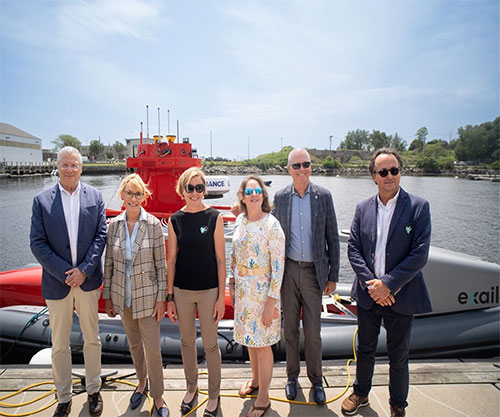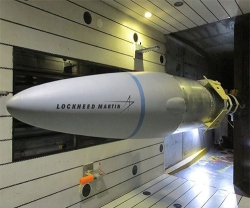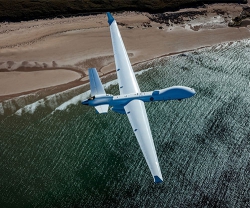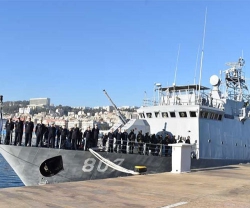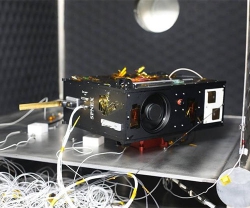Exail, a global innovator in the field of maritime autonomy, has opened a new innovation hub that will engage in all aspects of marine autonomous operations to help meet the challenges of the growing blue economy.
Exail will be using the new center to deliver increased operational advantage to U.S. civil and government customers. This includes the U.S. production of its Uncrewed Surface Vessel (USV), DriX, the housing of a remote operation center to conduct worldwide remote autonomous operations, establishing local operations, maintenance and training facilities, and providing expertise on maritime autonomy while also training future generations on the use of autonomous vessels.
The new hub will be located at the University of New Hampshire (UNH), a recognized leader in the field of ocean mapping research, and located within UNH’s Olson Advanced Manufacturing Center in Durham, to facilitate collaborative work with UNH’s Center for Coastal and Ocean Mapping (CCOM).
“We’ve been working together with UNH for the past six years pioneering uncrewed technologies, and we are now capitalizing on our common achievements with the opening of this new innovation hub,” stated Marine Slingue, President at Exail, Inc.
“We’re very proud and excited to take this next step in our U.S. adventure, and we would like to thank UNH, CCOM and NOAA, for their great support, leadership and vision on the use of uncrewed technologies that took us where we are today. We look forward to our continuous partnership with them and all the great work we achieve together to keep advancing maritime autonomy in the U.S.,” she added.
“This exciting collaboration will not only be good for Exail and UNH students and researchers but also good for New Hampshire and the nation,” said Larry Mayer, director of the Center for Coastal and Ocean Mapping at the University of New Hampshire.
”We anticipate that it is just the start of bringing many of our other industrial partners and government colleagues to the state as we create a local engine for the new blue economy,” he noted.
The opening of the new maritime autonomy innovation hub was celebrated on July 15th, in the presence of UNH President Jim Dean, U.S. Senator Maggie Hassan and Assistant Administrator of the National Oceanic and Atmospheric Administration (NOAA), Nicole LeBoeuf.
The University of New Hampshire inspires innovation and transforms lives in our state, nation and world. More than 16,000 students from all 50 states and 71 countries engage with an award-winning faculty in top-ranked programs in business, engineering, law, health and human services, liberal arts and the sciences across more than 200 programs of study.
A Carnegie Classification R1 institution, UNH partners with NASA, NOAA, NSF and NIH, and received $260 million in competitive external funding in FY21 to further explore and define the frontiers of land, sea and space.
The Center for Coastal and Ocean Mapping/Joint Hydrographic Center (CCOM/JHC) was founded in 1999 with two main objectives -- to develop tools to advance ocean mapping and hydrography, and to train the next generation of hydrographers and ocean mappers. Today, CCOM/JHC is an internationally recognized center of excellence for ocean mapping and hydrographic science, serving NOAA, the nation, and more than 50 industrial partners.
CCOM/JHC has a proven record of developing innovative new technologies and approaches, turning research into operational products, and producing a highly trained workforce in demand by federal agencies and the private sector.

